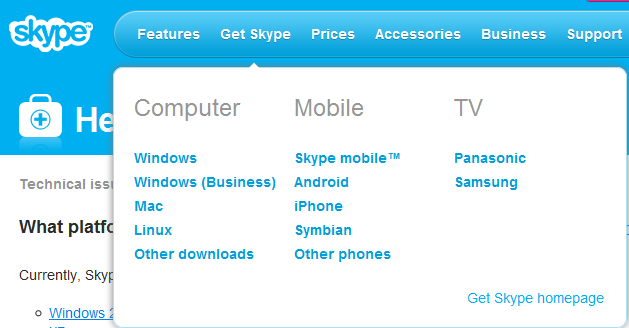With Skype, Microsoft's multiplatform strategy solidifies

Microsoft just took out a $8.5 billion insurance policy that it can maintain relevance in the post-PC world with its acquisition of Skype.
The software giant's acquisition of Skype, which will become a unit of Microsoft, ensures that the company will remain a player on multiple platforms. Sure you may not be in Microsoft's ecosystem anymore, but you are likely to have multiple touch points with the company. Skype will be the primary touch point.
Executives talked about the multiple screen and touch point theme on a conference call.
On a conference call, Microsoft CEO Steve Ballmer said:
Communications though is perhaps the most fundamental area in which technology can be transformative . Communications is changing rapidly and there are plenty of opportunities ahead . We will move beyond e-mail and text to rich experiences in the future. Talking to friends and colleagues around the world will be as seamless as talking to them across a kitchen table or a conference room.
Also: Microsoft CEO Ballmer's email about Skype acquisition: 'Exciting times!'
Skype CEO Tony Bates also detailed the multiple platform and screen theme:
We think about the world of communication across three lines of modality and we touched on those. One is clearly -- is the PC and we are very well-established in that market. That is where we started from. There is a natural obviously alignment with Microsoft there. The second one is clearly the mobile phone . People are more on the go all the time, smartphones having richer and better video capability and two-way cameras. And the third is also the living room quite candidly. I think it's an area where we'd like it just to be easier. This is where actually a lot of folks do spend time at home, including the grandma who would actually not necessarily have a smartphone and Skype has already shown how we can take or we have built and put that across a number of platforms . We already are on 50 million TVs, for example, today, but really getting that to go to the next level, we need to actually broaden that and connect to other devices.
If you strip away the head scratcher of a price---eBay execs must be glowing with the returns on their 35 percent stake in Skype---Microsoft's purchase makes sense. To wit:
- Microsoft's acquisition of Skype means Cisco and Google won't get it.
- Skype has a lot of relationships with SMBs and enterprises that will complement Microsoft's wares. By the way, Microsoft's Lync unified communications system looks like a strong product line.
- With Skype, Microsoft will have a major say---and could be the trendsetter---in video conferencing standards.
- Skype can support Xbox and Kinect, Windows Phone, Lync, Outlook and other properties.
- Microsoft also gets Skype CEO Tony Bates, a Cisco veteran that will come in handy in the unified communications wars.
However, the key line in Microsoft's press statement is this:
Microsoft will continue to invest in and support Skype clients on non-Microsoft platforms.
Don't believe that Microsoft will invest heavily in Android and Apple iOS support? Just look at some recent history.
- Microsoft launched Bing for the iPhone and Android.
- OneNote is on the iPhone.
- Microsoft's Azure platform has an SDK for iOS and Android.
- Config Manager is going to manage iPads.
- Now Microsoft really gets multiple platforms with Skype.
Add it up and Microsoft's purchase of Skype boils down to this. You may not be on Windows. You may not even use a Microsoft-powered device. But with Skype, Outlook, Hotmail and other properties the chances are high that you'll still be communicating and collaborating through Microsoft tools.
